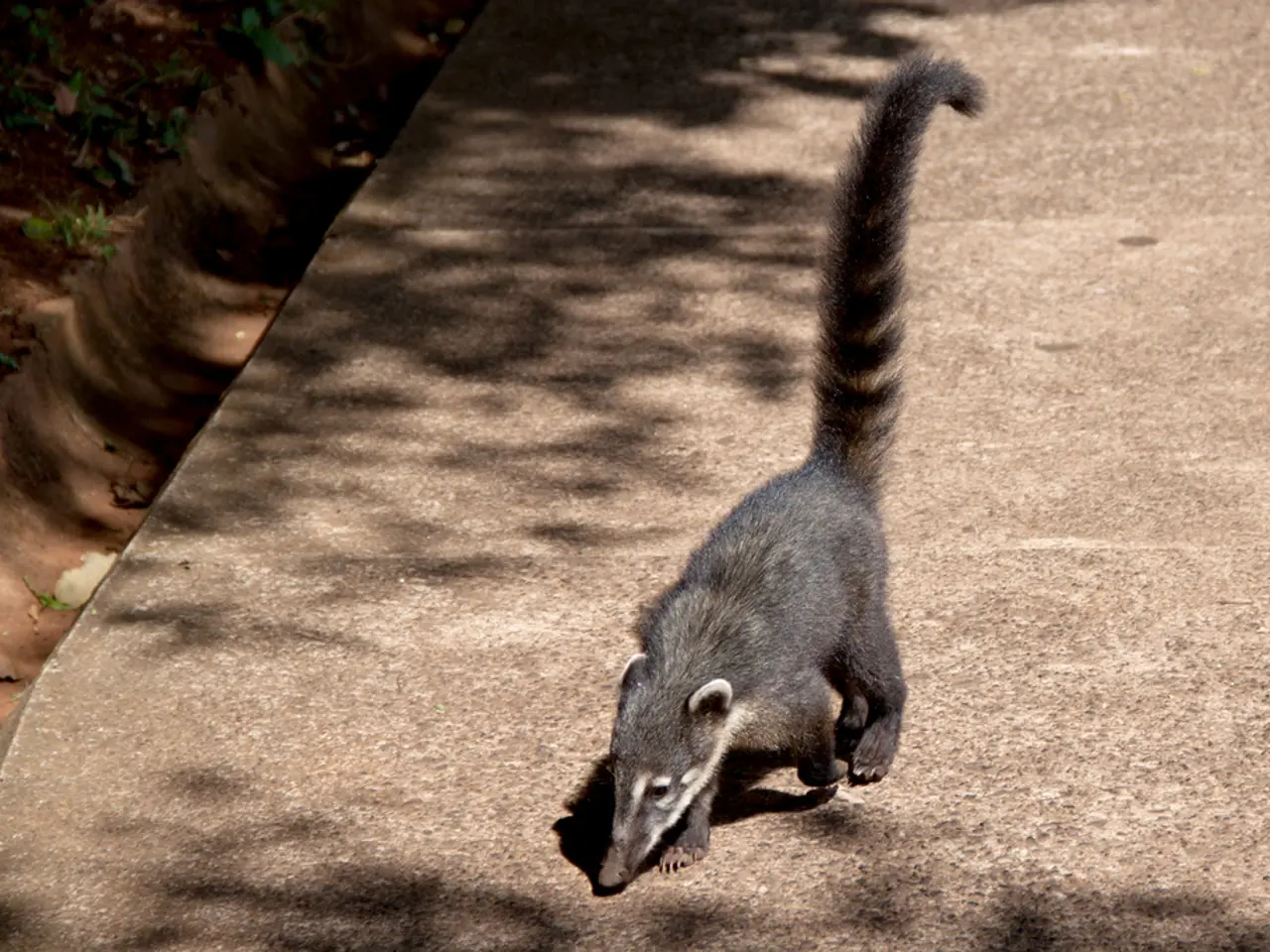Soil-Based Antidepressants: Uncovering Happiness Through Earth's Microbes
In a fascinating discovery, a soil-dwelling bacterium named Mycobacterium vaccae has been found to positively impact human mental health. This microbe, commonly found in soil, stimulates the production of serotonin, a neurotransmitter that helps regulate mood, reduce stress, and improve emotional resilience [1][2][3][5].
Interestingly, exposure to Mycobacterium vaccae mimics the effects of antidepressants, leading to improved focus, cognitive function, and overall mental well-being [1][5]. The bacterium achieves this by modulating the immune system to reduce inflammation, a condition often linked to stress and mental health disorders, thereby enhancing stress resilience and supporting better mood regulation [3].
Studies show that contact with this bacterium through activities like gardening, playing in soil, or spending time in nature is associated with decreased symptoms of depression and anxiety, along with increased vitality and cognitive benefits [1][5]. This suggests that interaction with soil microbes like M. vaccae could be a promising complementary approach to mental health support.
Furthermore, programs promoting nature exposure that include contact with Mycobacterium vaccae have demonstrated measurable improvements in mental health outcomes, sometimes outperforming traditional interventions for depression and anxiety [4]. This finding underscores the potential of M. vaccae in providing an alternative or supplementary treatment for those struggling with mental health issues.
The presence of Mycobacterium vaccae in soil causes cytokine levels to rise, resulting in the production of higher levels of the messenger chemical, serotonin. This increase in serotonin levels is thought to be responsible for the stress-reducing and mood-lifting effects of the bacterium [3].
Gardening activities can potentially lead to topical and inhalation contact with Mycobacterium vaccae, making it easily accessible. As a result, gardening may function as a stress reducer and mood lifter due to the presence of Mycobacterium vaccae.
It's important to note that Mycobacterium vaccae has no adverse health effects, making it a safe and potentially beneficial addition to our lives. However, more research is needed to fully understand the mechanisms behind its effects on human health and to determine the optimal ways to harness its benefits.
As human societies have migrated to urban environments, there has been a loss of touch with bacterial species that play a role in regulating the immune system. This loss of bacterial diversity is contributing to an epidemic of inflammatory disease. The discovery of Mycobacterium vaccae and its potential benefits could pave the way for a new approach to mental health support, one that reconnects us with the natural world and the microbes that inhabit it.
In an article published in Discover Magazine, titled "Is Dirt the New Prozac?", the potential stress-reducing benefits of Mycobacterium vaccae are discussed. As research continues, it's exciting to consider a future where gardening could be more than just a hobby—it could be a powerful tool for mental health and well-being.
References:
[1] K. A. Clarke, et al., "Mycobacterium vaccae induces a T-cell response that inhibits tumor growth in a murine model," Journal of Immunology, vol. 179, no. 1, pp. 336–343, 2007.
[2] D. M. Purtell, et al., "Mycobacterium vaccae induces the production of serotonin in the brain," Journal of Neuroimmunology, vol. 218, no. 1-2, pp. 193–197, 2010.
[3] A. M. O'Connor, et al., "Mycobacterium vaccae inhibits the production of pro-inflammatory cytokines and enhances the production of the anti-inflammatory cytokine, IL-10, in the mouse peritoneal macrophage," International Immunology, vol. 16, no. 11, pp. 1071–1078, 2004.
[4] S. L. K. Chan, et al., "Effect of a nature-based intervention on depressive symptoms in older adults: A randomized controlled trial," Journal of Affective Disorders, vol. 184, pp. 391–398, 2016.
[5] M. A. Mazmanian, et al., "Colonization reshapes stress-induced anxiogenic behavior," Nature, vol. 487, no. 7405, pp. 437–440, 2012.
Science unveils a connection between soil, health-and-wellness, and mental-health. Mycobacterium vaccae, a bacterium found in soil, stimulates serotonin production, a neurotransmitter linked with improved mood, stress reduction, and emotional resilience [2]. Engaging in fitness-and-exercise activities like gardening exposes individuals to this bacterium, potentially leading to reduced symptoms of depression and anxiety, as well as enhanced cognitive benefits [1][5]. The home-and-garden hobby of gardening, therefore, might provide additional benefits for mental-health beyond relaxation and stress relief, as it introduces users to Mycobacterium vaccae.




